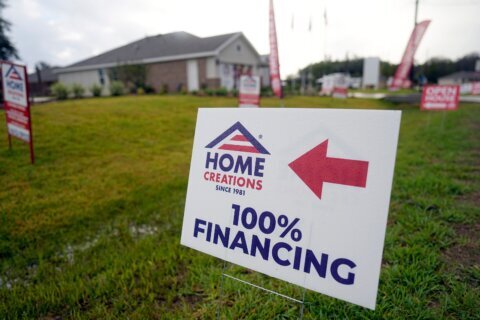It’s easy to see the rise in popularity of Airbnb and other online vacation rental sites and think it’s a good idea to buy a property dedicated to short-term housing. But that strategy may not be as simple or lucrative as it seems, experts warn.
The old adage “location, location, location” is true even more in vacation rental ownership.
“Certain areas are better for year-round renters,” says Will Woodard, a certified financial planner in North Carolina’s Outer Banks. He explains the climate in his hometown: “The weekly [vacation] rental market on the Outer Banks is very competitive and requires significantly more costs. There is a relative lack of supply in the year-round rental market so there is robust demand for rentals, especially those in the nicer neighborhoods that aren’t overpopulated with weekly rental cottages.”
[See: 8 Ways to Cash In on a Hot Housing Market.]
The catch is that housing is expensive and though rents are high compared to surrounding, non-resort areas, they would only reward an owner that’s owned more than 15 to 20 years due to high purchase prices, Woodard says.
These are the sorts of market conditions investors should know when evaluating a property to hold as a rental. But there are other considerations you should take into account.
Examine the local ordinances and rules. The biggest threat to the short-term rental business is swift-changing local laws that limit their use.
With affordable housing “in such a bind,” most major cities are enforcing regulations on short-term rentals, forcing landlords to put their rental properties back on the markets for families as long-term rentals, says Shawn Breyer, owner of Breyer Home Buyers in Atlanta.
And in Charleston, South Carolina, where Carolina One Plus real estate agent Susan Matthews says vacation rental margins are “super generous” because of year-round tourist attractions, vacation rental income isn’t legal unless the operator owns and lives on the property full-time. That’s in addition to city rules that require short-term rental operators not only to obtain a special license, but also pay fees and accommodations taxes. They can only host up to four adults at a time, she says.
If you are buying in a foreign country, consult a lawyer to make sure you understand the local laws, and make sure the lawyer is fluent in your language, says David Johnson, founding director of Halo Financial, a London-based firm that provides foreign exchange services.
Make sure the property works as a long-term rental or other use. Short-term rentals listed on Airbnb.com, HomeAway.com or VRBO.com are a great supplement to your rental income, but it is not a good long-term strategy, Breyer says. That’s because the business ebbs and flows, and consumer demand could change.
So when you’re analyzing a property to be made into a rental, make sure it cash flows as a year-long rental too.
[Read: 7 Tips for Investing in Timeshares.]
“If your cash flow numbers don’t work with a good long-term strategy, then don’t buy the property,” Breyer says.
You could also look at adapting the property to other models, such as furnished student housing or long-term relocation housing, Matthews says. In Charleston, the College of Charleston, Medical University of South Carolina and other schools create high demand for student housing while business growth has created a need for long-term relocation housing. “These rentals also offer good margins,”Matthews says.
Think about the tax rules. IRS tax code provides that rentals at less than fair market value disqualify the owner from taking into account expenses, says Morris Armstrong, an enrolled agent, investment advisor and rental property owner with Armstrong Financial Strategies in Cheshire, Connecticut. That means you can’t keep it for personal use and still get the tax write-offs, and you have to be careful about where you set your rates. If you rent the home less than 15 days a year, it’s exempt from income tax.
Consider the expenses of a short-term rental. Vacation rental properties are more costly to operate and maintain due to furnishings, frequent cleaning and repairs, Matthews says.
You also have to keep the gas, water, electric, cable and internet paid up, Armstrong adds. Discuss with a local real estate agent likely occupancy rates and competitive pricing.
That’s not to mention that you’ll need to spring for the kind of amenities that command higher prices and enough bookings to cover your costs. The top desired vacation rental amenity is a pool, with 19 percent of VacationRenter.com survey reporting so. That’s followed by pet friendliness at nearly 18 percent, and air conditioning at about 13 percent. VacationRenter.com aggregates vacation rental listings from multiple sites.
[See: 8 Things to Consider When Buying Investment Property.]
Not having what the customers want can turn your cash cow into a net loss.
“If you are looking for income and profit from a rental, then you have to step up your game,” Armstrong says. “I have a client with a dated cottage that in Cape Cod. They refuse to update it with central air conditioning or a more modern look to the kitchen. In the past, they could count on it being rented out most of the summer season. Now, they are lucky if it is rented out two weeks.”
More from U.S. News
7 Ways to Invest in Real Estate with ETFs
The 10 Best REIT ETFs on the Market
8 REIT Categories With the Wind at Their Backs
Is Owning an Airbnb a Smart Investment? originally appeared on usnews.com







